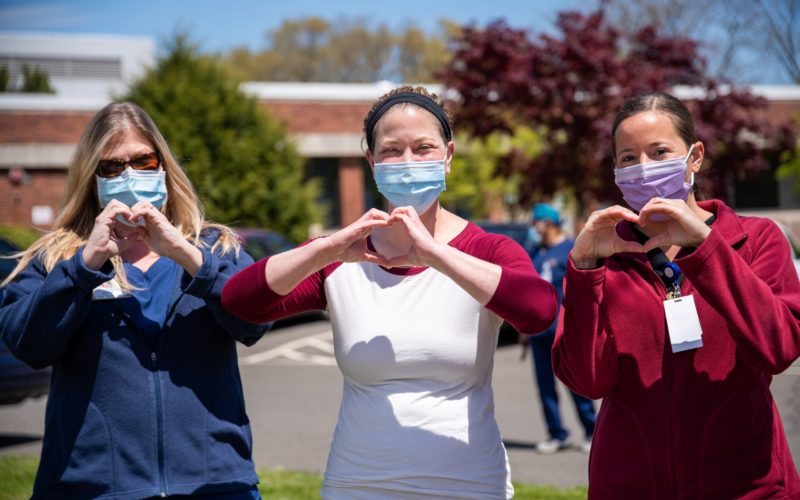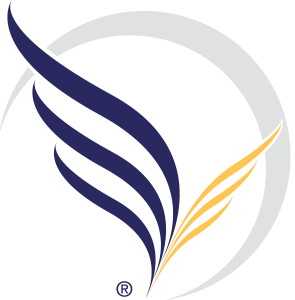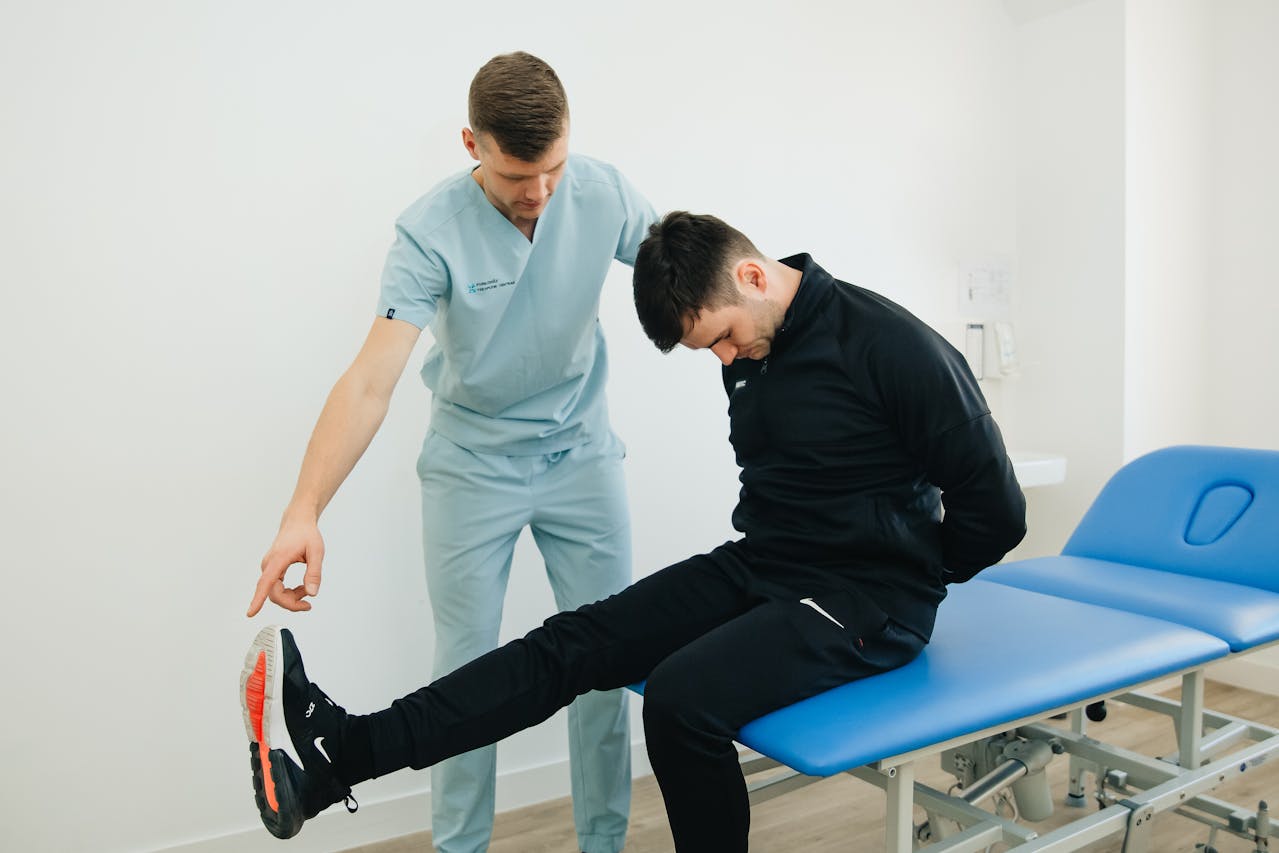Why Do Nurses Get Varicose Veins?
Nursing is one of the most common career paths considered “at-risk” for venous disease. The demands of the job contribute to varicose veins, spider veins, leg swelling and blood clots. Sitting and/or standing for long periods of time (often 12 or more hours) increases the likelihood of developing venous disease and these unwelcomed symptoms and risks.
Why does this happen? Sitting or standing for long periods adds the stress of gravity to your veins. Over time, your leg veins check valves may fail. When this happens, the veins struggle to return your blood from your feet to your heart. The blood then pools in your leg veins, leading to heaviness, aching, and even visible, bulging varicose veins.
While being a nurse certainly increases your likelihood of developing varicose veins, you can reduce your risk and improve your overall health and quality of life with the help of our vein specialists.
How Can Nurses Reduce Their Varicose Vein Risk?

There are simple ways to reduce the risk of developing venous disease, even in the most demanding jobs. For nurses, in addition to comfortable, supportive footwear, we recommend you also:
- Wear scrubs which are loose fitting and comfortable. If your scrubs are starting to feel a little tight, pinching or digging into your skin, your circulation may be negatively affected. Follow this advice in your personal life as well, and avoid tight jeans and other clothing.
- Wear compression stockings or sleeves under your scrubs. While you’re likely walking around a lot during your work day, compression can help ensure healthy circulation from your legs back up to your heart, even when you’re sitting at your desk filing paperwork.
- Elevate your legs daily after your shift. Make sure your feet are above your heart, allowing gravity to aid in healthy blood flow. This will also reduce any swelling in your legs and feet after a long, grueling shift.
- Pump your calves at your desk. While filing paperwork, for example, pump your calf muscles. This improves circulation and keeps your veins strong. It can also prevent cramping and leg fatigue, like a good stretch before a workout.
- Take care when choosing footwear off the clock. While we definitely want you to enjoy your off-duty life, avoid high-heeled shoes whenever possible. Opt for fashionable flats instead to reduce the pressure on your legs and veins.
- Integrate fitness into your lifestyle. While it seems counterintuitive to exercise after being on your feet for work all day, it’s absolutely essential to work your muscles and improve circulation. It will also help you maintain a healthy weight, if this is something you struggle with.
- Maintain a healthy weight through diet and exercise. Being overweight puts pressure on your veins, decreasing circulation and increasing the risk of venous disease.
For more tips on preventing varicose veins, read more about our Better Veins for Life® principles, and discuss how you can implement these lifestyle changes into your daily routine.
Varicose Veins Aren’t Always Visible
If you don’t see leg swelling or varicose veins, you may still have ‘hidden varicose disease’ especially if your legs hurt, feel heavy or fatigued when you are on your feet or sitting while working. This can be difficult to discern, as you frequently exert yourselves and can rationalize leg discomfort as just another symptom of the job.
Follow your own advice and listen to your body. If your legs feel heavy, tired, or painful, you may have invisible varicose veins deep in your leg, where you cannot see them. See a vein specialist today to find out more about your leg health.
Other Risks for Developing Varicose Veins in Nurses
If you have a family history of venous disease and have had children you should take extra care if symptoms arise, as varicose veins tend to run in families and the risk increases with child bearing. If you have visible varicose veins, have a history or blood clots, are taking hormonal birth control or other medications which may affect your hormones, your risk for developing Deep Vein Thrombosis (DVT) or Superficial Vein Thrombosis (SVT), also increases.
Remember it is important to understand your risk when you have symptoms. More importantly, it is a good idea to speak with a vein specialist if you are concerned about your leg health.










